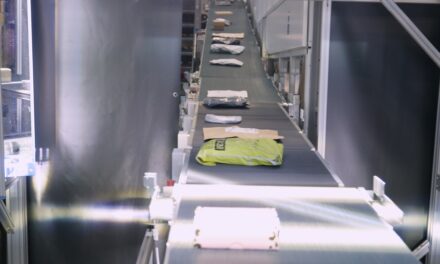
UK mail volume figures continue to decline
According to the latest figures, this is the third consecutive year of mail volume decline in the UK and is contributing to Royal Mail’s shrinkage.
According to Royal Mail, 5.03 billion items of direct mail were sent in the UK in 2006, a decline of 2.1pct in volume on the previous year. The UK addressed mail market was worth around GBP 6.8 billion in 2006/07. Mail volumes amounted to 21.9 billion items, down 2pct on the previous year. These figures included downstream access, all regulated and non-regulated mail, but excludes door-to-door and international.
Transactional mail volume estimates range anywhere from 6bn to 10bn items per year, this volume is estimated to be declining by around 2-3pct per year. This is due largely to businesses encouraging their customers to move physical bills and statements online.
In 2006/07, mail carried via access arrangements (both operator and customer direct access) accounted for 11.8pct of total mail volumes. This is an increase from 5.6pct in 2005/06.
Royal Mail’s financial performance for the year ended 25 March 2007 was weaker than in the previous year with operating profits (before exceptional items) for Royal Mail Letters’ business falling from GBP 344m to GBP 194m, caused by increasing costs, falling mail volumes and constant revenue. For the licensed area, Royal Mail recorded operating losses of GBP 29m in 2006/07 compared with profits of GBP 168m in 2005/066.
The USO remained profitable overall though less so than the previous year (operating profit was GBP 27 million compared with GBP 54 million in 2005/06) with profits from non-licensed mail weighing over 350g continuing to offset losses on licensed mail weighing 0-350g.
Postcomm has warned Royal Mail that it’s slow reaction to competition and lack of innovative ideas for the growth in the internet and ecommerce could be damaging.
According to the latest figures, this is the third consecutive year of mail volume decline in the UK and is contributing to Royal Mail’s shrinkage.
“There is growing industry concern that this may be a structural decline based on a mature mail market subject to impacts such as e-substitution. While there is evidence to suggest that substitution has caused mail volumes to decline for the last three years, there is also evidence of areas of growth in the market which appears to be offsetting a more significant volume decline.” said Postcomm, the mail regulator.
According to Royal Mail, 5.03 billion items of direct mail were sent in the UK in 2006, a decline of 2.1pct in volume on the previous year. The UK addressed mail market was worth around GBP 6.8 billion in 2006/07. Mail volumes amounted to 21.9 billion items, down 2pct on the previous year. These figures included downstream access, all regulated and non-regulated mail, but excludes door-to-door and international.
Transactional mail volume estimates range anywhere from 6bn to 10bn items per year, this volume is estimated to be declining by around 2-3pct per year. This is due largely to businesses encouraging their customers to move physical bills and statements online.
In 2006/07, mail carried via access arrangements (both operator and customer direct access) accounted for 11.8pct of total mail volumes. This is an increase from 5.6pct in 2005/06.
Royal Mail’s financial performance for the year ended 25 March 2007 was weaker than in the previous year with operating profits (before exceptional items) for Royal Mail Letters’ business falling from GBP 344m to GBP 194m, caused by increasing costs, falling mail volumes and constant revenue. For the licensed area, Royal Mail recorded operating losses of GBP 29m in 2006/07 compared with profits of GBP 168m in 2005/066.
The USO remained profitable overall though less so than the previous year (operating profit was GBP 27 million compared with GBP 54 million in 2005/06) with profits from non-licensed mail weighing over 350g continuing to offset losses on licensed mail weighing 0-350g.
Postcomm has warned Royal Mail that it’s slow reaction to competition and lack of innovative ideas for the growth in the internet and ecommerce could be damaging.











